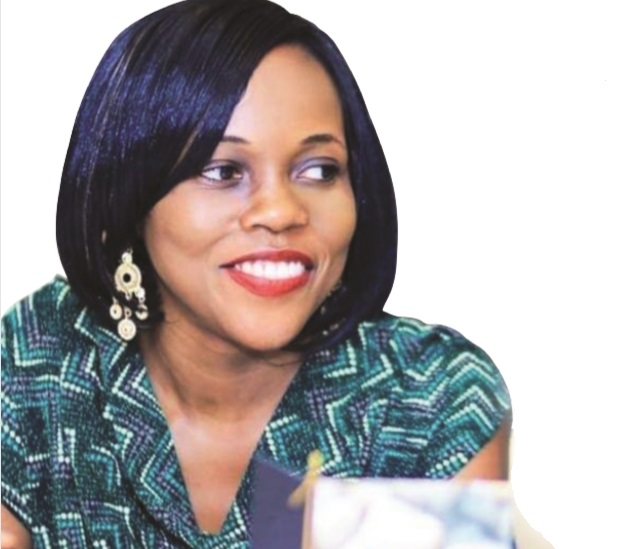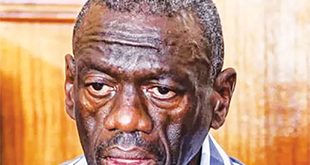
Perry Aritua is the Executive Director of Women’s Democracy Network Uganda Chapter. She spoke to The Independent’s Agnes E Nantaba.
What do you make of this year’s global theme: “Think Equal, Build Smart, and Innovate for Change’?
The theme is a reflection of achievements, gaps, new initiatives and challenges as we strive for equal opportunity. The international women’s day themes have kept centred around bettering gender balance and fit within this year’s world slogan being ‘balance for better’. The message is that we need to make improvements in all facets where women, boys and girls exists; for instance in the family, workplace, community, institutions of learning and the entire world. It’s mainly focusing on what each of us needs to do to ensure that there is equal opportunity and reminds us that we need to do better in the struggle.
How does Uganda’s theme ‘Empowering Women through Innovative Approaches to Social Protection; a Pre-requisite for Inclusive and Sustainable Development’ fit into the global theme?
When you innovate new ideas, you are likely to find solutions to some of the problems that have been persistent. It helps us discover why some strategies are not working and thus the need to do more thinking and action to address the impasse in women’s development.
New innovations help us target the right people, come up with the right message and bring on board the people whom we talk for who are women. We also need to reflect on achievements and assess the challenges to understand why even when resources both in terms of finance and human resource have been devoted and invested in the same areas, progress remains low. For instance Uganda Women’s Network (UWONET) conducted a gender assessment with women organisations to find out some of the reasons why progress in some areas remains low. The research revealed that the social norms and practices within our societies are still a big hindrance to achieving equal opportunities in the social, political and economic circles. While some women have tried to come up and achieved in the different areas, they are held back by beliefs and attitudes that boys and men are better than women who are looked at as second class citizens.
The gender position of women in Uganda remains inferior as inherent patriarchal traditions abide despite efforts to bridge the gap. How best can this be addressed?
We need to also look at what is working; for instance in some parts of western Uganda, reports indicate that some families have decided that freehold land should be divided equally among boys and girls. There is, therefore, need to conduct some scientific research to understand what drove the change in mind-set for those families to believe that both boys and girls should have equal access to land. We need to hear from such people such that we can borrow from them and expand such pilots to other areas that are still lagging behind. Our progress can only be measured when there is regular spread of information.
We also need to continue to build the women’s movement with anyone who believes in it so that at the end of the day, we can have positives at all levels. We encourage women to do their best, be as effective as possible because in case an opportunity is misused, women will be judged harshly. Women must also understand that their struggle will be twice as hard and harsh; so it’s important that such a message sinks home.
There are a number of women who live in rural areas and are doing incredible things but they are hardly heard of. They are never celebrated and yet many women would identify with their own. Technology is one of the tools that we must continue to harness if we are to track and communicate our progress. We also need to tell the world that it’s not easy and thus need the support of other stakeholders.
In most of the efforts, there is an emphasis of getting more women and girls on board; doesn’t this leave the boys and men behind?
The struggle for equal opportunities shouldn’t be the women’s struggle alone. I strongly believe that men and boys at times hold the positions and make the decisions which either close or open doors for women. It is important for us to target the men and boys with influence; those who speak and attract an audience. Equal opportunities must be for both boys and girls because when you have one group move ahead of the other, we shall feel aggrieved; especially when we have the same strengths to take them on.
What lessons can Uganda learn from countries like Rwanda, Kenya, Tunisia and Liberia that are making historic changes to ensure no woman or girl is left behind?
We need to learn from countries like Kenya and Rwanda that are within a similar context like Uganda. For instance Kenya and Rwanda passed the marriage law while Uganda has since 1965 not amended the Marriage and Divorce Act into marriage bill. But we should also work on attitude change and showcase things that women have done for their country.
Most of Uganda’s challenges are enforcement related. Uganda is rated as having some of the most progressive laws for women and girls to achieve equal treatment. It is however surprising to know that to this day, the provisions on marriage have not been translated into law yet the constitution is clear on equality during marriage and at its dissolution. The law is actually constitutional which means that law makers should do their job.
Enforcement only happens if those in leadership take the lead and its important to understand that leadership is not only in the public sphere but goes as low as the family or home which is the first unit of administration.
Uganda has taken major steps forward to promote and safeguard the rights and dignity of women especially in the legal and policy regimes. How can the gap between policy and practice be dealt with?
The 1972 Succession Act was made under the illusion that it was only men who owned property and when it comes to inheritance, only men and boys inherit. We need to cover all gaps because laws are meant to guide society. The judiciary has gone ahead of parliament because the reality in those laws is that the context has changed and these are lessons that we can take from other countries.
Liberian is one the few countries that has had a female president even with other intricacies of inequality existing in the country. It’s a challenge for us to learn from them; especially on how they got there.
What is your take on the argument to shift debate from emancipation to ensuring security and financial independence of women?
There is that argument that when a woman is financially independent, other challenges that come with inequality are addressed. However, I have argued for equality in all ways because some women are financially independent but remain battered. Research has proven that when women have financial independence, they are able to make a number of decisions like on health, education of selves and children so it gives some mileage in terms of decision making and action. There will, however, still be some implications due to the patriarchal nature of society. Financial independence gets women to some level but we need to make the struggle inclusive since society has distributed resources in an unfair manner.
How best can the efforts of young women changing the narrative of different professions be appreciated?
Documentation of their work is very key but also ensuring that they are part of the coverage in the media. The media is an important pillar in shaping discussion of issues and draws us to who and what is given coverage. We need to profile women so that when opportunities arise, the stakeholders can easily relate with them. We have started mentoring student leaders at the level of secondary schools to make them understand that even at their level, they can make a difference.
Where does the future of women in Uganda lie?
The future lies in our hands as women and leaders in the different aspects starting with the home to the public sphere like cultural and religious institutions. There are certain decisions that are made by leaders and once they are made, we will deal with the persistent challenges. Leaders set the pace right from home and products are reflected in their efforts and characters.
****
 The Independent Uganda: You get the Truth we Pay the Price
The Independent Uganda: You get the Truth we Pay the Price


